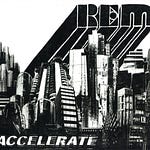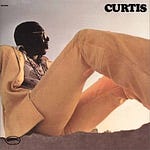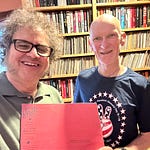Welcome to Episode 8 of the CROSSED CHANNELS podcast, in which two music journalists/obsessives, Dan Epstein (the Yank) and Tony Fletcher (the Brit) clash and connect over music from either side of the pond.
In our last episode, we took a deep dive into The Clash’s controversial 1980 album Sandinista!, and attempted to whittle down its sprawling three LPs into a 12-track single album. Just as the three Clash albums that preceded Sandinista! have tended to loom the largest in that band’s legacy, so too is the case with today’s subject: Love, the groundbreaking, genre-blending American band led by the brilliant and mercurial Arthur Lee.
For decades, Love has been (rightly) celebrated for their phenomenal 1967 album Forever Changes — a record which regularly appears near the top of “Greatest Psychedelic Albums of All Time” lists, and sometimes “Greatest Albums of All Time, Period” lists, too — as well as their half-great 1966 pop-jazz-psych LP Da Capo and their self-titled folk-punk debut from earlier that same year.
Those were the albums that turned Dan into the diehard Love obsessive he is today, and which set the course for his memorable run-ins with Arthur Lee himself, which he recently wrote about in the Jagged Time Lapse piece included here:
Friday Flashback: Love Is More Than Words
But there is far more to Arthur Lee and Love’s discography than those first three albums and their non-LP 1968 single “Your Mind and We Belong Together,” which was the last thing Lee cut with Love’s “classic lineup”. 1969’s Four Sail was ignored or denigrated by music critics for decades, simply because it featured an almost entirely new Love lineup, and because its acid-rock sound was such a radical departure from the pastoral soft-psych of Forever Changes.
And yet, Four Sail contains some of Lee’s finest songs — and there are even some days where Dan actually prefers this underrated album to anything else in the Love catalog, Forever Changes included.
Dan has been completely obsessed with Love since the 1980s, and is preparing as we speak to travel to Scotland to catch a couple of dates on Love Revisited’s current UK tour. Tony, on the other hand, knows Love primarily from Forever Changes, an album which sold much better in the UK upon its original release than it did in its homeland, and which inspired such disparate British bands as UFO, The Damned and The Boo Radleys to record covers of the Bryan MacLean-penned “Alone Again Or”.
So what’s Tony’s take on Love in general, and on Four Sail in particular? Will Dan convince him of that album’s enduring brilliance, or will it all be a bit too “West Coast hippie” for his punk rock liking? Tune in to the latest episode of CROSSED CHANNELS to find out!
A free preview of Episode 8 is available to all listeners, but the full episodes of the CROSSED CHANNELS podcast are only available to paid subscribers of Jagged Time Lapse or Tony Fletcher, Wordsmith. If you’re already a free subscriber to either of these Substacks (or better yet, both), upgrade your subscription now to hear the whole thing, as well as all our previous episodes. As always, we are immensely grateful for your encouragement and support! Cheers!


















